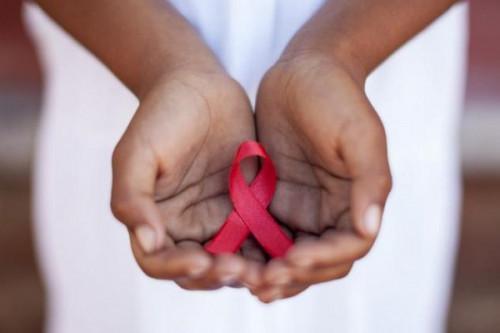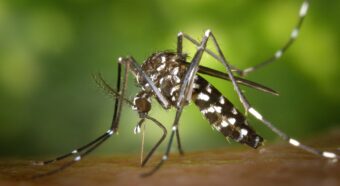Communities make their voices heard at the International Conference on AIDS and STIs ICASA 2023
- February 13, 2024
- Africa
- By The Bureau
- Read in French

The 22nd International Conference on AIDS and STIs in Africa (ICASA) was held in Harare, Zimbabwe from 4 to 9 December 2023. It brought together over 6,000 participants from around 100 countries, including many community representatives, under the theme “AIDS is not over: Address inequalities, accelerate inclusion and innovation”. The conference, opened by the President of Zimbabwe, Emmerson Mnangagwa, and the President of Mozambique, Filipe Nyusi, was aimed at fostering respect for equity, inclusion and diversity in the control and mitigation of the impact of diseases, sustaining and increasing domestic financing and community response, bolstering response to HIV/AIDS, COVID-19, mpox, Ebola and other emerging diseases, mitigating the impact of hepatitis, tuberculosis and malaria through health systems strengthening, and generating and providing evidence-based data for policy formulation.
Effective community participation at ICASA
Communities, including key populations, played an important role in the conference by sharing their experiences and discussing the challenges they faced. Discussions focused, for instance, on how to strengthen community involvement, promote access to healthcare, address stigma and discrimination, and ensure prevention.
Community positions included the following points:
- Review laws and policies to integrate the specific needs of key populations.
- Following the example of the SDGs and the UNAIDS 95-95-95 targets, African governments must set new targets against which citizens can hold them accountable.
- Key populations deserve a new chance: citizens, communities and political authorities should not act as moral judges.
- The inclusion of young people and key populations as panellists, session chairs and facilitators is a positive point that should be maintained.
- In some African communities, influencers such as traditional chiefs and faith-based organizations need to be more involved in the HIV response, as they are the custodians of the culture and can influence change.
- Leaving key populations behind will contribute to making the rest of the society vulnerable.
Community organizations also hosted side events to raise public awareness on the health issues facing key populations. Activities carried out by key population communities included training sessions, workshops, presentations and exhibitions.
In addition, the community village provided a platform for PLHIV, key populations, community leaders and their partners to showcase their programs, services and best practices, share experiences and network to support the response to end AIDS.
All these activities are ample proof that the conference organizers and the host country, Zimbabwe, made considerable efforts to be inclusive and to allow communities to have a say.
How can community leadership positively impact the elimination of AIDS?
The conference came on the heels of the observance of World AIDS Day 2023, which was the subject of a report published by UNAIDS. The report’s powerful and essential statement is to “Let communities lead” because the world can end AIDS if communities are at the heart of initiatives as they can bring about significant and lasting change. Community organizations of people living with, at risk of or affected by HIV are at the forefront of progress in the HIV response. They link people to person-centered public health services, build trust, innovate, monitor the implementation of policies and services, and hold providers accountable.
The report further emphasizes that, unleashing the full potential of community leadership to end AIDS requires heeding them:
“Nothing about us without us.”
- Make communities’ leadership roles central to the formulation, budgeting, implementation, monitoring and evaluation of all plans, policies and programmes that will affect communities and that impact the HIV response.
“Investing in communities is not just the right thing to do; it is the smart thing to do.” Winnie Byanyima
- Fully and sustainably fund communities’ leadership roles so that programmes can be scaled up, and the people implementing them can be properly supported and remunerated. The cost of not ending AIDS is far greater than the investment required to combat the pandemic.
“Abolish discriminatory laws, adopt protective laws.”
- Remove barriers to communities’ leadership roles. An enabling regulatory environment is necessary to facilitate the role of communities in HIV service delivery, guarantee civil society space and protect human rights without exception, including those of marginalized communities, to advance the global HIV response.
Rights and obligations
It is essential that communities, and in particular those of key populations, that must be at the heart of any action taken for their benefit, speak out about their experiences, and that their voice be heard in all decisions affecting them. Furthermore, the respect of the right to health as well as other human rights is essential to ensure a comprehensive and inclusive response to HIV with a view to its elimination by 2030.
However, it is also important that community representatives taking part in international events comply with the legislation in force in the host countries, as legal systems give rise to both rights and responsibilities, and it is generally accepted that all individuals, whether nationals or non-nationals, must abide by the laws and regulations of the State on whose territory they find themselves. Advocacy for the abolition of discriminatory laws is a process that takes time to achieve positive results, and must be carried out legally and with diplomacy.
- On a positive note, governments are increasingly aware of the need to ensure that key populations are not left behind in the response to HIV, TB and malaria, as evidenced by the many countries that have not yet decriminalized homosexuality and sex work, for example, but welcomed the Global Fund’s “ Breaking Down Human Rights-Related Barriers to HIV and TB Services aimed at removing human rights barriers to accessing HIV, tuberculosis and malaria services in 20 countries and beyond, including many African countries, notably Cameroon, Benin, Botswana, Côte d’Ivoire, Democratic Republic of Congo, Ghana, Kenya, Mozambique, Senegal, Sierra Leone, South Africa, Tunisia and Uganda.
Considering the Initiative’s specific objectives of reducing social rejection and discrimination related to HIV and tuberculosis, training caregivers in human rights and medical ethics, sensitizing legislators and law enforcement officers, reducing discrimination against women, providing legal literacy, offering legal services, and monitoring and reforming laws, regulations and policies it is hoped that the effective scaling-up of this initiative and similar important endeavours will contribute significantly to achieving progress towards the elimination of discriminatory laws against key populations, and ultimately to the eradication of the three diseases.
Rose Meku


